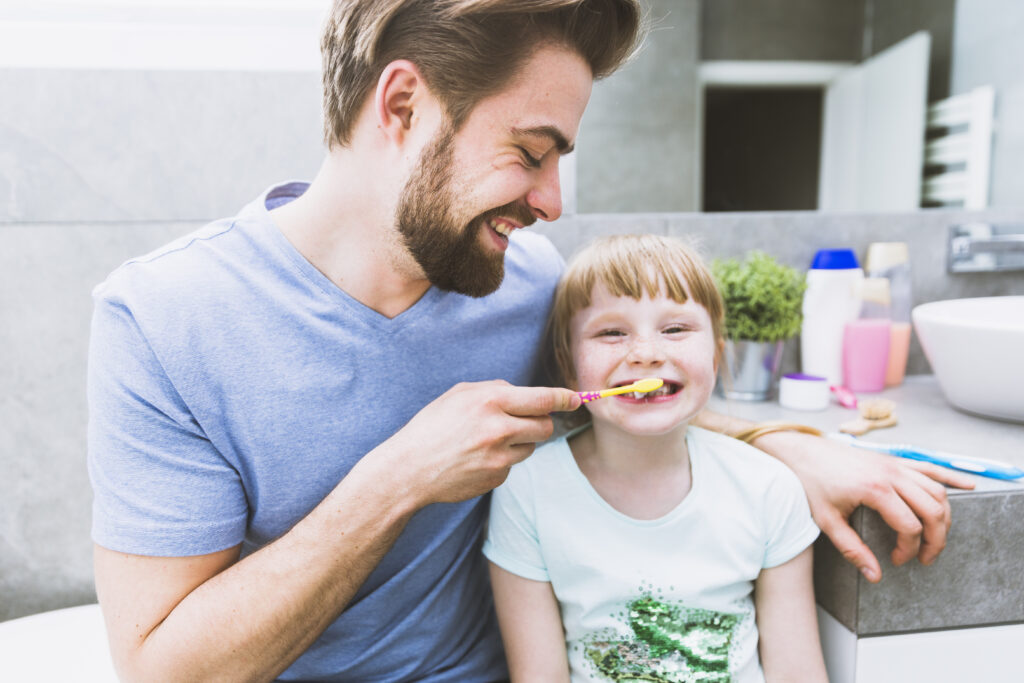
Think about what you did this morning. Was there a plan, a series of actions and tasks that you do every morning at the same time? Did you finish these tasks and then know that you needed to start something else? As creatures of habit we may wake, exercise, have coffee/tea/ read emails, watch TV, listen to news, dress, shower, eat breakfast, say goodbye, drop off children to the bus stop/ train, get the bus/train/drive to work….. Phew.
These are routines. As an adult you complete them without thinking because you learned to build them into your day.
Routine is defined by the Macquarie Dictionary as a regular procedure. Routines may be a sequence of actions regularly followed, something rehearsed or a habit, the same thing done at the same time with the same actions each day, week, month or year.
Our children not only follow your routines but need their own.
Routines help children make sense of their world. Children need routines to be emotionally and socially comforted and supported. They help children develop the skills to recognise time and its passing, they help children prepare and protect themselves, and they offer sequence and structure for their day.
However they wake up and start their day …. happy, boisterous or grumpy, immediately energetic or slowly emerging from that wonderful restful sleep (anyone recognise their children or themselves here?)….it’s a routine, their routine. Children can recognise that after they wake up they may get out of bed, go to the bathroom , have a drink, have breakfast , watch some TV , get dressed, clean their teeth , pack their bags ……
Routines give children security and predictability and foster development. Routines help your child scaffold their day. They learn to expect and prepare for activities and to develop concepts of time related to before and after. Routines are their framework for the day. Routines relate to people and relationships and major time events. School timetables and break times are a good example.
For children who commenced or changed schools this year a change of routine was inevitable. The key to managing the change successfully includes good preparation, a positive attitude and ongoing support from other families and school staff. As the changes take effect, it helps to have open and honest discussions with your child about how it is working and to be on the lookout for signs of any stress or anxiety.
There will always be the unexpected, the unplanned and the extraordinary event in our children’s lives. We have all learned to be flexible over the last year. These will be opportunities for growth and development where children will learn to adapt, change and perhaps adopt a new routine.
The skills of resilience and self-regulation can be built, practised and applied here. These two key skills will be a topic for another time.
Mary Digges *
MDR Education
Early Childhood Consultant for Angsana Education.
* Mary Digges is an early childhood teacher, lecturer, trainer, assessor and consultant in education and has long promoted bilingual and multilingual education. Mary has worked in Australia, Singapore and China.
References
You may be interested in further reading from these references.
https://www.melbournechildpsychology.com.au/blog/the-importance-of-routine-in-childhood/
https://raisingchildren.net.au/grown-ups/family-life/routines-rituals-relationships/family-routines
